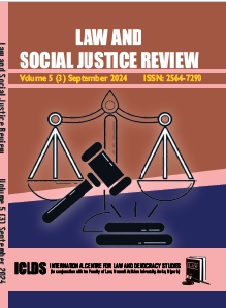HEARSAY VERSUS RES GESTAE: A CRITICAL EXAMINATION OF THE ADMISSIBILITY PARADOX
Keywords:
Evidence, Hearsay, Res Gestate, Reliability, AdmissibilityAbstract
This article undertakes a complex analysis of the hearsay rule and its exceptions, with a specific focus on the admissibility of dying declarations. While hearsay evidence is generally excluded due to concerns about reliability and trustworthiness, dying declarations are paradoxically admissible as an exception to the hearsay rule. This article explores the historical and jurisprudential underpinnings of this distinction, examining the rationale behind the admissibility of dying declarations despite their hearsay nature. The article argues that the admissibility of dying declarations is premised on the assumption that a person facing imminent death is compelled to speak the truth, thereby conferring a degree of reliability on such statements. In contrast, hearsay evidence is often criticized for its potential unreliability and lack of contemporaneity. Through a critical examination of relevant case law and statutory provisions, this article contends that the distinction between hearsay and dying declarations is rooted in the notion of necessity and the circumstances under which the statements are made. This article aims to contribute to the ongoing debate on the hearsay rule and its exceptions, shedding more lights on the complexities and paradoxes that underlie the admissibility of evidence in legal proceedings. By examining the tension between the exclusionary hearsay rule and the admissibility of dying declarations, this research seeks to inform the development of evidence law and practice.

